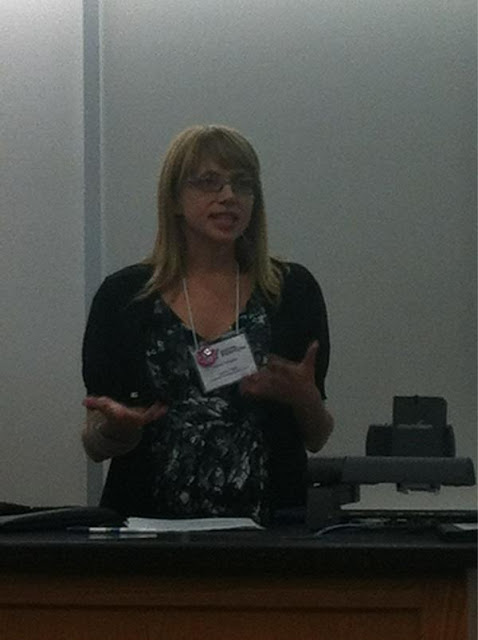 |
| Annual Event Luncheon, Texoma Council of Governments |
 |
| Photo North Texas E-News |
Today I was the keynote speaker at the Annual Event held by the Texoma Council of Governments. Several hundred public servants, business leaders, elected office holders, and guests from across Texoma attended. It was my task to speak on the theme “The Roots of Regionalism” here in Texoma. In my talk, I noted that Texas is an amalgamation of regions. Those regional identifies are linked to our history, our topography, and our economy, and our demography. One can argue that history is the most powerful determinant of region. Regionalism is based absolutely in the reality of our past and is not artificially manufactured from fiction. It was my main theme that Texoma is a sustainable region on its own terms. In Texoma we have a common history, an interlocking commercial and a civic heritage that works to give Cooke, Grayson, and Fannin Counties a strong regional identity.We have many region-wide assets that, although identified with a particular city, county, or private concern, are used by people from all over Texoma. There are many, many regional assets of a public and private nature that tie this region together and we all use them no matter where we live. I regularly dine in restaurants located in Tioga, Collinsville, Whitesboro, Denison, Pottsboro, Sherman, Whitewright, and Bonham, and also in Oklahoma. When visitors come, we spend time in museums and other attractions in Cooke, Grayson, and Fannin counties. We shop at stores and retail concerns all over the area. In many respects, Texoma functions for its residents as if it were one large city, which of course, it is not. It is a region.
In my remarks, I mentioned a number of places that make this entire region one sustainable entity. One such place for me is the Waterloo Pool in Denison. A while back, I suffered a serious injury to my leg that required two extensive operations along with several months in the hospital, with my thereafter being temporarily confined to a wheel chair. My successful recovery was materially augmented in a significant way by the outstanding public hydrofitness exercise venue at the Waterloo Pool. I go there almost daily although I am a resident of Sherman. It is my belief that I am walking without leg braces and a cane in very large part because of the Waterloo pool, which I believe provides one of the best public pools in the State of Texas for people who seek hydrofitness exercise, along of course for those who just wish to swim in an all-weather, year round place. People from Denison and those from all over the Texoma region use the pool. Those of us who are not from Denison are happy to pay non-resident admission fees. I therefore submit that the Waterloo Pool is a Denison treasure that is also a regional asset enriching the lives of people across Texoma.
 |
| The Waterloo Pool |
There are thus a considerable number of such public entities and private businesses that, like the Waterloo pool, are doing an excellent job in sustaining a very meaningful regionalism for Texoma. TAPS has become a model transportation resource that wields together our region. So too is the Texoma Council of Governments a successful force for regional cooperation. Vibrant and profitable regionalism can be seen currently in the private sector with our region-wide banking and retail concerns. Can more be done? Of course, such is absolutely the case. And it would not be an overwhelming task because we have a solid base upon which to build in presenting the Texoma region to the rest of the state and the nation. I closed my remarks by noting there are great possibilities and potentials ahead of us in making this region stronger. We can welcome opportunity to meet the assured future growth of Texoma on our own terms. For Texoma, the sum has always been greater, richer, and more rewarding that the component parts. Such will be the case for the future if we are successful in managing the growth that will surely occur in the coming decades across the Texoma region with cooperation, coordination, and contemplation of our mutual interests.










